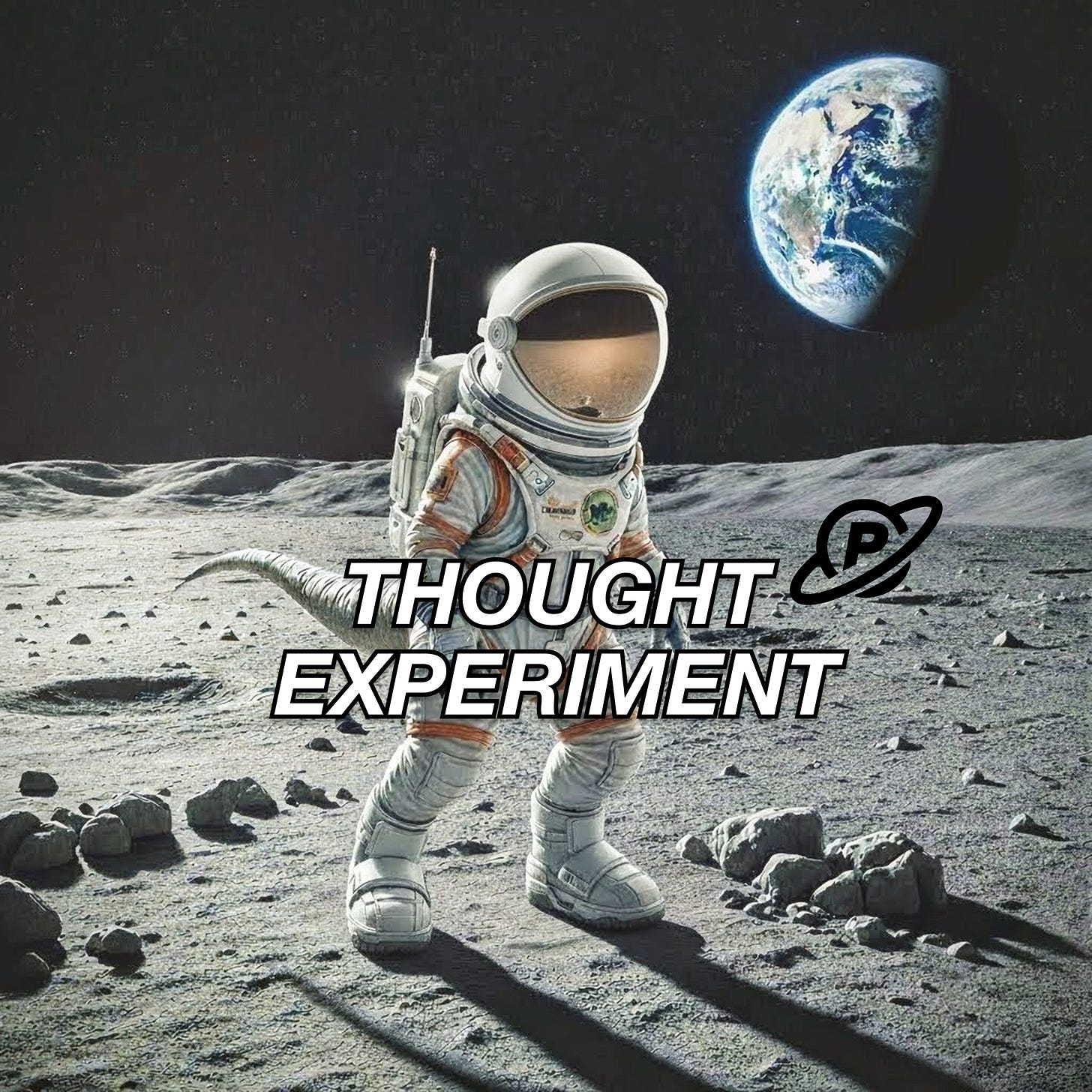Thought Experiment - Mental Model: What If?
Be a scientist, forecaster, explorer, or daydreamer. Do it all inside your own head.
Whether you think about the future of your profession, your company processes, or simulate the trip for your upcoming vacation, thought experiments help.
Thought experiments, as a mental model, are tools to help you predict outcomes, and you use them frequently without even noticing.
These helped me simulate processes and life decisions, from designing a good performance review to deciding to have a gap year.
Your Mind’s Lab
We can run experiments inside our heads. But there are many limitations to it, as we can operate only within our circle of competence, our experience and our full set of knowledge about the world.
I enjoy playing the "What if?" game on a smaller or bigger scale:
What if aliens visited Earth and tried to figure out our religion? (I'm betting they'd assume we worship the god of perfect green lawns).
What if I hadn't bet on studying computer science?
If you want to make the most of it, thought experiments can be as strict as real experiments. To do that:
Understand the domain of the experiment
Follow the rules of the domain (physics, social interactions, etc.)
Generate many possibilities, think of outcomes
We can simulate future scenarios in our minds. The sharper this skill, the smarter our decisions.
Famous Experiments:
Over the years, philosophers and thinkers have proposed thought experiments which act as food for thought.
We can predict the future, experiment with the past, and also uncover some moral dilemmas. These can go really deep. I've simplified a lot but included links if you're interested in further exploration.
Fairness: The Veil of Ignorance
"The veil of ignorance" presented by John Rawls in his 1971 book "A Theory of Justice"
Imaginary context and the experiment:
You are part of a group that decides on the principles of the new society.
None of you knows what your role/position is inside that society.
All elements like your race, income, gender, and religion are unknown.
You decide on principles and then randomly put them into society.
Open question: How will society end up with the rules you set?
Leadership's perspective: When designing processes, make them fair for everyone. You might end up in any role affected by your decisions.
The Hard Choice: Trolley Problem
Imaginary context and the experiment:
There is a trolley, which kills a group of people or just one if you pull the lever.
You can choose by using a lever to change its way.
It can go deep into ethical dilemmas, and that's something we are closer to when programming algorithms that decide on life or death. But there are less deadly examples framed differently when we optimise for resources.
Leadership's perspective: When allocating resources, deciding on budgets, or even sunsetting products. It's a trade-off to evaluate "one vs many". Do you move your top engineer to save a failing project? Do you optimise for most users or protect the few?
Trust or Betray: The Prisoner's Dilemma
The Prisoner's Dilemma, a thought experiment, illustrates people's self-interest over cooperation:
Imaginary context and the experiment:
There are two players.
They can choose to cooperate or betray, to earn points (think of these points as success or profit).
They don't know their decisions.
When they both cooperate, they each win 3 points. When they both betray, they each get 1 point. When one cooperates but the second betrays, the deceiving one gets 5 points while the cooperator gets 0.
Open question: How would you act as the player?
In a single game, the rational choice is often to betray. But when played repeatedly, like most real-world situations, cooperation tends to be the winning strategy. I wrote an article about Reciprocity, which featured the experiment.
But the nature of thought experiments is for you to decide what you will do, and simulate results in your own mind.
Your Personal “What If?” Scenarios
I was always a huge fan of dinosaurs, so I often ask myself:
What would have happened if the huge meteor hadn't struck the dinosaurs? — It doesn't have to be that abstract, but closer to where you have control over your life or work decisions:
Thought experiments for your career:
What if you have more time?
What if AI replaces everything that you do starting tomorrow?
What if you were fired tomorrow?
Playing with “What if?" is an interesting exercise to perform or talk through with other people. That's thought experiments in action.
Summary
Your present is constructed from countless smaller events that led you here. But using thought experiments, we can simulate different parallel worlds if the past were different. Our imagination is limitless.
The past is history.
The future is a mystery.
Today is a gift.
That’s why it’s called the present.
— Unknown
Before your next important decision, run thought experiments: define the domain, explore possible outcomes, and consider all parties involved.
Your brain is already running experiments. You can control how they're run. For some, it is intellectual fun in the process.
Thanks for reading!
— Michał
Post Notes
Discover Weekly — Shoutouts
Articles that might help you explore new perspectives, which I’ve read recently:
[Fundamentals] Start right before you get eaten by the bear by Wes Kao
TBM 377: Time Allocation ≠ Capacity Allocation by John Cutler
7 signs your team doesn't feel safe with you by Taha Hussain
Connect
LinkedIn | Substack DM | Mentoring | X | Bsky



I also used this one before deciding to take a break. Helps to imagine the best and worst scenarios :)
Michał, I really enjoyed this! I love how you connect thought experiments to real-life decisions. The examples, like the trolley problem and the Prisoner’s Dilemma, made me think about how I approach choices in my own work and life.